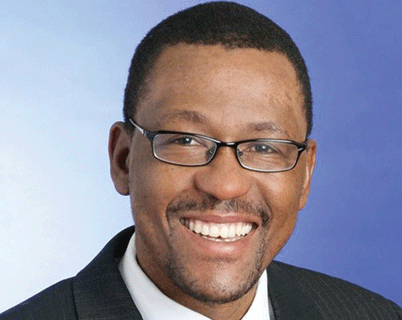
THE prospective chief executive officer (CEO) of the Zimbabwe Broadcasting Corporation (ZBC) faces serious organisational development challenges that resulted from the breakdown of a previously functioning organisation.
One of the first important tasks of the new CEO will be to understand the political direction under which he/she will be working.
The legislated political direction is not a hindrance to achieving the goal of turning around the organisation. ZBC is a public institution with a public mandate; therefore its business model will be heavily influenced by political and public administration guidelines.
However, the fact that the organisation has to contend with political guidelines does not mean that it will fail. If that were the case, no public institution around the world would be in existence.
Turning around ZBC into a successful organisation will require employing an organisational development approach.
Organisational development is a deliberately planned effort that focuses on a system-wide deployment of behavioural science knowledge of strategies, structures and processes resulting in the improvement to an organisation’s effectiveness.
According to a 2012 report of the Comptroller and Auditor-General, it is clear that ZBC lacks key elements of an effective organisation, namely, strategy, structure, processes, people practice and culture. I explain these in detail below.
Clearly, when the CEO and the board failed to submit an acceptable turnaround plan, it signified an organisation lacking a viable vision to arrest the decay at ZBC and improve its business.
- Chamisa under fire over US$120K donation
- Mavhunga puts DeMbare into Chibuku quarterfinals
- Pension funds bet on Cabora Bassa oilfields
- Councils defy govt fire tender directive
Keep Reading
The lack of a strategy tends to drive both employees and, regrettably managers, to be task-focused and lose the strategic focus. The new CEO will be challenged to ensure he/she puts in place a strategy that aligns with vision, clearly lays out agreed priorities, outcomes and performance measures, etc.
The prospective CEO will have to examine issues related to structure and improve on it to make sure the organisational structure aligns with business activities, staff understand their roles and responsibilities and build capacity into the operational model so that staff can carry out their functions.
The CEO will need to ensure that the organisational structure, whether hierarchical or organic, aligns with business activities to support the purpose of the strategy.
Roles that are assigned to staff should be very specific and aligned with functions to allow employees to perform specific work within their area of expertise. The CEO should ensure that co-ordination among the various teams, with appropriate spans of control, is effective.
Teams and departments should work together and avoid a silo mindset, which many times causes gaps, duplications and omissions to perform critical functions.
The processes currently in place at ZBC need to be examined and strengthened. For instance, ZBC needs to establish standard operational procedures which ensure that routine processes such as producing financial statements and have them audited are carried out.
They are important because they give the minister and the board an understanding of the financial health of the organisation and its capacity to finance business activities that lead to the attainment of corporate strategic goals.
Management should strengthen communication between business units so that each knows what the other is doing and also work together where possible to maximise on available skill sets, technologies and processes.
Staff communication should be enhanced and communication protocols improved for effectiveness.
Technology is critical in building organisational excellence. Organisations that invest in technology enhance their effectiveness and reduce costs significantly. The new ZBC CEO should deploy cutting edge technology to produce high quality programming that rivals the South Africa Broadcasting Corporation.
In addition, appropriate technology needs to be established to manage business processes such as financial, asset, human resources management.
The new CEO will have to deal with people and culture issues such as values and beliefs, learning and development. The new CEO has to establish a new values and beliefs system that defines the principles and ethics by which ZBC will operate.
Some of the key values and beliefs system to be considered include prioritising the welfare of workers, teamwork, achieving excellence, accountability, etc. These values and beliefs communicate the behaviours expected to help achieve optimum productivity in an environment that values and supports the employee.
The new CEO needs to prioritise learning and development in order to build or maintain a team with latest knowledge in their respective fields.
It also allows staff to be more efficient, innovative and achieve professional growth.
In conclusion, there is need for a performance review to be conducted on the current management team, and where deficiencies are observed, corrective action needs to be taken immediately.
Management will need to be made aware that it is no longer business as usual. There will be a new organisational management approach providing rewards for excellence and consequences for failure.










